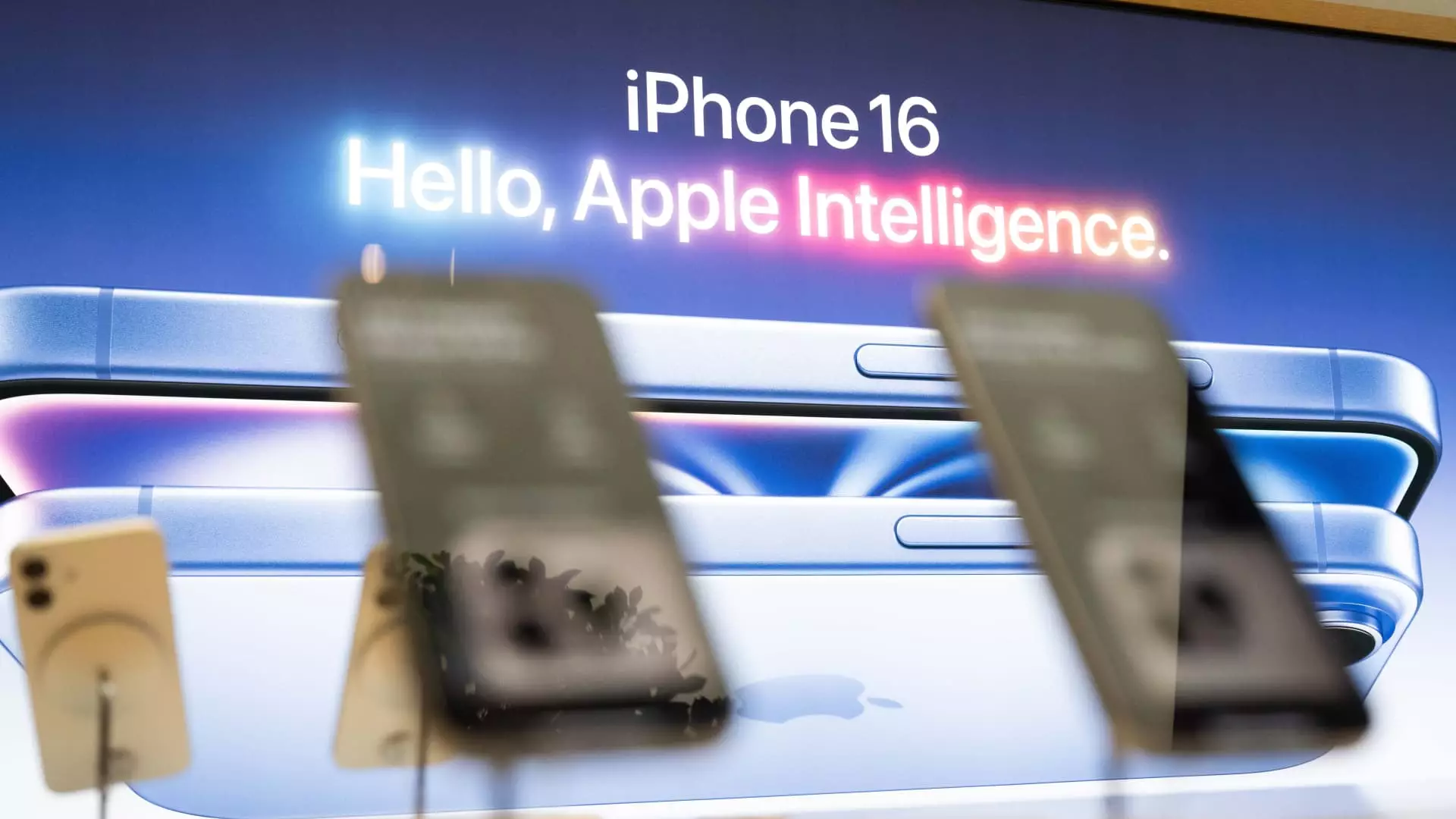In the rapidly evolving world of technology, especially within the realm of artificial intelligence, precision in marketing is crucial. Consumers crave innovation, but they also demand authenticity. Recently, Apple, a brand synonymous with quality and modernity, faced backlash from the National Advertising Division (NAD) for its misleading advertising surrounding the iPhone 16’s AI capabilities. This incident serves as a stark reminder of how even industry giants can stumble, especially when they stretch the truth in pursuit of consumer interest. Apple’s struggle not just threatens its brand integrity but also rubs against the grain of responsible advertising.
The Fumbled Advertisement
Apple’s ambitious marketing campaign for the iPhone 16 heavily leaned on the promises of its so-called “Apple Intelligence” features, which included enhanced Siri capabilities and various AI-driven utilities. These features were tantalizingly packaged as available “now,” yet many were delayed in availability due to developmental snags. It was only after weeks of consumer anticipation that the NAD stepped in, highlighting that the ad presented features that, in reality, hadn’t been launched yet. This not only misled consumers but tainted Apple’s reputation by creating an illusion of ineptitude in its marketing strategies.
While it might seem trivial in the grand scheme of AI development, the implications of stretching the truth are significant. For a market leader like Apple, trust is currency. Once tarnished, it takes much more than a well-crafted ad to restore consumer faith.
The Fallout: Lawsuits and Class Action Struggles
As if the NAD’s condemnation wasn’t enough, the fallout has extended into the legal arena. Apple now faces class-action lawsuits linked to its misleading advertising claims about its AI features. This legal scrutiny showcases a growing concern in the tech community: the ethical boundaries of AI and the responsibility marketers have in communicating their capabilities accurately. Many might argue that what Apple describes as an automated miscommunication, this is not merely marketing blunders, but rather an alarming example of how narratives in tech can be trained to mislead.
When companies like Apple experience such legal stressors, it reflects poorly not just on their direct marketing strategies but also on the ethos of the entire tech industry. Trust erodes swiftly, and consumers, once fans of products and innovations, can quickly find themselves in opposition.
The Reality Check: Changes to Marketing Approaches
In light of the criticism, Apple has begun to recalibrate its marketing approach. The tagline “AI for the rest of us” implies a renewed focus on accessibility over overstated promises. The ad for “Clean Up,” which showcases clearer and more achievable AI features, attempts to pivot towards genuine, measurable improvements. It suggests a learning curve, highlighting that Apple understands the necessity of aligning advertising claims with user experience.
While such changes show potential maturity, they also raise questions about how Apple can regain lost credibility. Adjusting the marketing narrative may help mitigate some damage, but can they convince the public that they are a brand founded on integrity moving forward?
The Bigger Picture: Artificial Intelligence’s Struggles
Apple’s struggle isn’t isolated; the tech industry as a whole is facing a reckoning regarding the deceptions surrounding AI. The NAD’s recent focus on scrutinizing claims related to AI technologies signifies a critical shift towards greater accountability. As AI’s growth rate accelerates, the ethical responsibility of companies that rely on its capabilities must strengthen.
This growing emphasis on honest representation comes hand-in-hand with the rising demand from consumers seeking transparency. In an era of commendable advancements in AI, creating substantial features should take precedence over hyping them prematurely. Apple needs to learn that the implications of integrity should supersede short-term gains from misleading advertisements.
Consumer Sentiment: Value versus Hype
Surveys reveal a concerning trend: many consumers express willingness to pay a premium for meaningful AI upgrades. Yet, the discontent surrounding Apple’s advertising practices may drastically shift consumer perceptions about the value of the advertised features. As reported, over half of respondents expressed a willingness to invest significantly in AI capabilities, yet many are now wary of what Apple can genuinely provide following this incident.
Companies like Apple face the dual challenge of innovating with cutting-edge technology while ensuring that they are maintaining transparency with their audience. If trust erodes, so does the potential for increased consumer investment.
Ultimately, as we witness this tech giant navigate its trials and tribulations, the broader lesson resonates loudly in our digital society: genuine innovation paired with transparent marketing could very well become the cornerstone of success in an increasingly skeptical consumer base.

